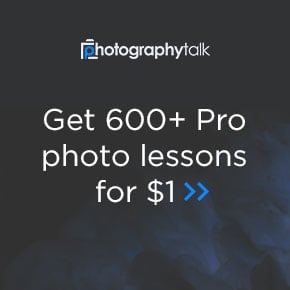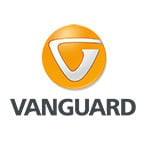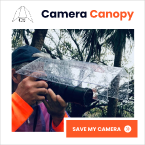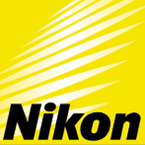- Forum
- Photography and Camera Forum
- Equipment Research, Buying and Using
- Digital Cameras
- I would like some help choosing my first camera
I would like some help choosing my first camera
-
 Topic Author
Topic Author
- Apprentice
- Newbie
- Followers: 17
- Posts: 1
-
Points:
410
Post #683154
I don't know much about what exactly do I need in the technical aspectsof a camera(Obviously what makes a great photo is a great photographer, but I'm just talking about the technical stuff like dynamic range, sensor size and such) to achieve a gorgeous looking portrait(with lots of details and sharpness) without going into the Full Frame world.
My budget is somewhere in the price range of a sony a6400 or a canon 80d (which are actually two cameras that I'm considering purchasing right now), and I'm going to use the camera to record videos as well, so that's a factor to consider.
I don't know if I should go with a DSLR or a Mirrorless camera considering the fact that I'm going in the direction of becoming a professional photographer in the future. If there is a professional portrait photographer or an expert that could help me with this decision it would be amazing.
The cameras that I am considering in the moment are the following: Sony a6400, Canon 80D, Canon M50, Canon SL2, Canon SL3, and a Nikon D7100.
Finally, I would like to thank everyone that will be helping me in advance, you're awesome.
-

- TCav
- The Lounger
-
- Nikon D7200. Sony A77 II. Pentax KP.
- Followers: 86
- Posts: 1075
-
Points:
32974
Post #708408
Post #708464
The real secret is the lens. If you put a crap lens on a $10,000 camera you're going to get a crap image. If you put a $600 lens on a $300 camera you can get some amazing images. When you purchase a camera you are really buying into a lens mount system, and that really is the difference.
Canon RF Mount: Very new and exciting lenses coming from canon, but they are expensive (at least for now) and the offerings are limited (again, for now). You can adapt Canon EF lenses to RF.
Canon EF/EF-S Mount: A literal mountain of lenses available for just anything you can think of. The EF-S mount is specifically for the APS-C sensor such as in the Rebel cameras (which can use both EF and EF-S lenses). With the introduction of the RF mount, EF mount lenses are coming down in price, though not quickly because they are still amazing lenses.
Sony E-Mount: Probably the most adapted mount out there. You can get just about lens to mount to a Sony camera, even Canon EF lenses. There are even websites and Facebook pages dedicated to adapting vintage lenses to Sony camera's. The number of lenses for Sony isn't as large as Canon EF, but you won't be lacking for focal length or coverage and the native Sony G Master lenses are top notch.
Nikon Z Mount: I personally don't have a lot of experience with Nikon, but Nikon just filed for bankruptcy protection. If they survive (I am sure they will) they have been used by professionals for decades. I have always compared Nikon to Volvo. I don't know anyone who drives a Volvo, but the people who do drive them seem to love them. It is just not a system I have any real experience with.
The two camera's you are considering are great camera's that will serve you for many years. Regardless of which you chose, you are making a good decision with either of those.
- Forum
- Photography and Camera Forum
- Equipment Research, Buying and Using
- Digital Cameras
- I would like some help choosing my first camera
Latest Reviews
The Sigma DP2 Quattro is a rare breed. It’s a large-sensor point-and-shoot camera with a 29MP sensor and a 30mm f/2.8 fixed lens. The question is, who is this camera for? Let’s find out!
I’ve been testing the Vanguard VEO 5 264CB-160S for several weeks now, and I have to say that my first impressions are nothing but good. Vanguard has knocked it out of the park yet again!
The Fujifilm X-H2s is Fuji’s flagship hybrid APS-C mirrorless camera. It launched in the summer of 2022 and has been impressing photographers and videographers alike ever since!
The Sony a9 III is a powerhouse professional-grade camera. The question is, should it be the next item in your camera bag? Find out if it’s worth the money in this comprehensive review!
Latest Articles
The Canon EOS R1 was finally released last week, and the question is - does it live up to the hype? Let’s dive in and explore firsthand what this camera does and doesn’t offer.
Improving your photography skills takes time, effort, and dedication. But with these unique exercises, you can make the process of becoming a better photographer more fun, too!
Night street photography is a fun pursuit with opportunities to develop your skills with portraiture, light trails, and architectural photography skills - and your nighttime photography skills, too!
The Canon EOS R5 Mark II has been unveiled, but it has a hefty price tag. If it’s out of your budget, the original Canon EOS R5 is a fantastic option. Learn more about it in this guide!
The Sigma DP2 Quattro is a rare breed. It’s a large-sensor point-and-shoot camera with a 29MP sensor and a 30mm f/2.8 fixed lens. The question is, who is this camera for? Let’s find out!
You need to try unique newborn photography ideas from time to time to keep your inspiration levels up. With the ideas in this guide, you can do just that!
What is the best landscape lens for photography - a prime or a zoom? The answer is a little murky, as it depends on the specific situation. Learn more about these lenses in this detailed guide!
Lightning photography is a tricky beast, but with the right tips, tricks, and tools, you can make the most of the next storm that rolls through. Learn some essential techniques in this guide!














